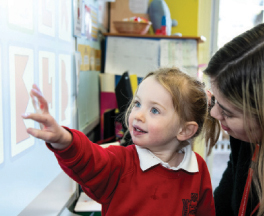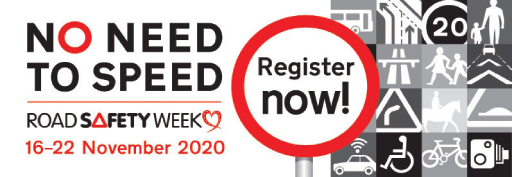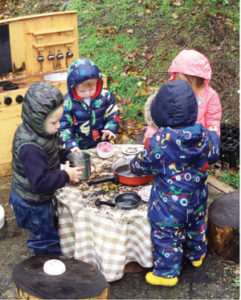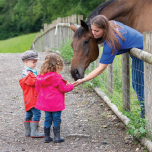
In the last five years, fuel bills for an average family home in the UK have soared by 40%. In fact, heating a property today costs approximately £1,800 per year compared to £1,290 in 2015. One of the problems lies in the thousands of properties across the UK which lack energy efficiency. Older homes with insufficient insulation can leak warm air. This means more energy is consumed to heat the property and consequentially heating bills will increase.
If you’re a homeowner or landlord, there are improvements you can undertake to mitigate the cost of your energy bills, making your property cheaper to run and more environmentally friendly. However, the initial outlay of such improvements can run into thousands of pounds.
The government’s Green Homes Grant Scheme is helping to address this issue by covering the costs of installing energy efficient updates to your home, which could result in significant annual savings on fuel bills. Here, Donna McCreadie, a property specialist at Perrys Chartered Accountants, explains how homeowners and landlords can ensure they are reaping the benefits.
What is the Green Homes Grant scheme?
The Green Homes Grant allows homeowners and landlords to apply for a voucher from the government towards the cost of qualifying energy efficiency and low carbon heating improvements to homes. The voucher will cover two thirds of this cost up to £5,000 or, for households on low incomes or receiving certain benefits, the entire cost up to £10,000. However, landlords can only apply for costs up to £5,000.
What work can be carried out on my property as part of the Green Homes Grant?
Work covered by the scheme is broken down into two parts – primary measures and secondary measures. Homeowners will need to undertake at least one primary measure in order to qualify.
Primary measures are classified as follows:
• Installing insulation in a solid wall, cavity wall, under the floor, in a loft, in a flat roof, in a room in roof or in a park home.
• Improving low carbon heat via the installation of an air source heat pump, ground source heat pump or solar thermal.
• ‘Top ups’ are allowed. For example, the installation of additional loft insulation to meet the minimum recommended level or the installation of solid wall insulation for other walls where a wall has been previously insulated. However, replacements are not included.
Secondary measures cannot be subsidised for more than the amount of cost to carry out the primary measures.
For example, if a household receives £1,000 for primary measures, they can only receive a maximum of £1,000 towards any secondary measures.
Second measures include the following:
• Draught proofing.
• Updating windows and doors: double/triple glazing (where replacing single glazing), secondary glazing (in addition to single glazing), upgrading to energy efficient doors (where replacing doors installed prior to 2002).
• Updating heating controls and insulation. These include appliance thermostats, hot water tank thermostats, hot water tank insulation, smart heating controls, zone controls, delayed start thermostat, thermostatic radiator valves.
• For low-carbon heating, households will need to have adequate wall insulation (cavity wall or solid wall insulation) and, where applicable, loft insulation. These can be installed as part of a package – they do not have to already be in situ.
Which companies accept the Green Homes Grant voucher?
Under the terms and conditions of the voucher, homeowners will need to use one of the TrustMark certified tradespeople listed on the government’s directory of approved installers.
How do I apply for a Green Homes Grant?
If you are a homeowner or landlord visit the Simple Energy Advice’s (SEA) website to find out if you’re eligible for a voucher. Here, you can also access further information and get advice about what improvements will be suitable for your property.
In order to carry out work under the scheme, all tradespeople and businesses will need to be certified to install energy efficiency or low carbon heat measures to relevant standards and must register their certification.



 As Carol Dweck states: “Everyone is born with an intense drive to learn, infants stretch their skills daily. Not just ordinary skills, but the most difficult tasks of a lifetime, like learning to walk and talk. Babies don’t worry about making mistakes nor humiliating themselves. They never decide it’s too hard or not worth the effort. They walk, they fall, they get up. They just barge forward.”
As Carol Dweck states: “Everyone is born with an intense drive to learn, infants stretch their skills daily. Not just ordinary skills, but the most difficult tasks of a lifetime, like learning to walk and talk. Babies don’t worry about making mistakes nor humiliating themselves. They never decide it’s too hard or not worth the effort. They walk, they fall, they get up. They just barge forward.”


 Forest School is a more sustained, long-term process which aims through positive outdoor experiences to encourage and inspire children to love the world around them. For preschool children, Forest School nurtures their sense of wonder and their curiosity about the world outside, closely entwined with the ideals of free-flow play and learning from play that underpin the child-centred learning ethos and areas that lie at the heart of the Early Years Foundation Stage which runs from birth to five years of age. Away from their school or nursery, they have adventures in natural habitats such as woods, rivers and streams, ponds and beaches. Supervised with the lightest of touches by staff, the children have the freedom to discover what fascinates them in nature and to respond spontaneously to the environment they are exploring.
Forest School is a more sustained, long-term process which aims through positive outdoor experiences to encourage and inspire children to love the world around them. For preschool children, Forest School nurtures their sense of wonder and their curiosity about the world outside, closely entwined with the ideals of free-flow play and learning from play that underpin the child-centred learning ethos and areas that lie at the heart of the Early Years Foundation Stage which runs from birth to five years of age. Away from their school or nursery, they have adventures in natural habitats such as woods, rivers and streams, ponds and beaches. Supervised with the lightest of touches by staff, the children have the freedom to discover what fascinates them in nature and to respond spontaneously to the environment they are exploring.


 If it’s not possible to escape the colder months here in the UK and jet off to sunnier climes this year, then we might all just need to be a bit more creative in order to make sure we can still enjoy the great outdoors.
If it’s not possible to escape the colder months here in the UK and jet off to sunnier climes this year, then we might all just need to be a bit more creative in order to make sure we can still enjoy the great outdoors. Leave the picnic at home
Leave the picnic at home









